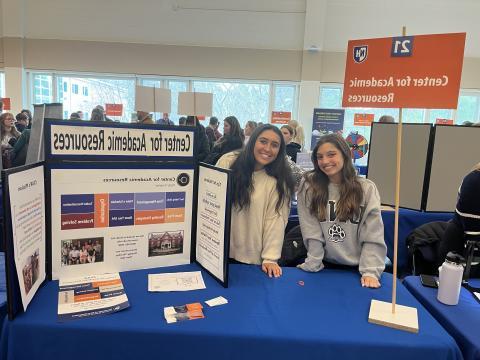Welcome to 主要研究 first-year students and transfers. 我们很高兴你能来! Below are some hot tips on how to navigate your new academic culture!

导师们会分享关键的收获
- CFAR peer academic mentors share what they wish they had known once arriving on campus!
- Remember, you don't need to figure it all out by yourself.
为什么与CFAR合作?
- CFAR knows the best ways to study for classes at the university level and we want to see you succeed in all facets of being a Wildcat!
What I wish I knew: actionable videos from Quinnipiac University
Your first year is more than grade 13
This information is borrowed from the University of Delaware's 学术充实办公室. CFAR can assist with your transition to 主要研究 and make sure it's as smooth as possible! Expand the sections below to learn more about the differences between high school and college:
| 在高中…… | 在大学里… |
|
|
|
|
|
|
|
|
|
|
|
|
|
|
|
|
|
|
| 在高中…… | 在大学里… |
|
|
|
|
|
|
| 在高中…… | 在大学里… |
|
|
|
|
|
|
|
|
|
|
| 在高中…… | 在大学里… |
|
|
|
|
|
|
| 在高中…… | 在大学里… |
|
|
| 在高中…… | 在大学里… |
|
|
|
|
|
|
|
|
给新主要研究野猫的建议
- 走出去
- 接受改变
- 依靠别人
- 愿意说“是”!"
- 参加俱乐部和组织!
- 和你的教授联系
- 不要拖延
- 保持思想开放!
学生无障碍服务
If you are a student with a documented disability: medical, 物理, 学习, 或者情绪障碍, check out the services available through 学生无障碍服务 (SAS). 了解更多有关 这里的住宿流程! For students (and their families) impacted by 学习 disabilities and/or 执行功能ing diagnoses, 看看地标学院的“Guide to Assessing College Readiness." This great resource acts as a skills inventory in five foundational areas: academic skills, 自我理解(元认知), 维护自己的权利, 执行功能, 动力和信心!
